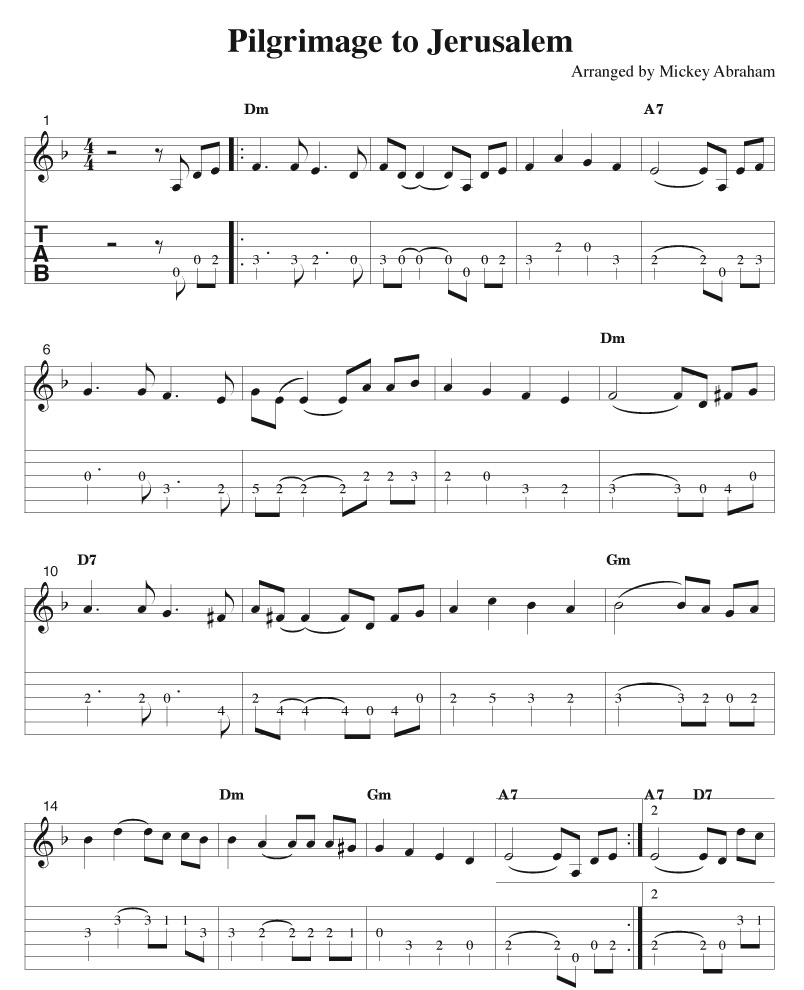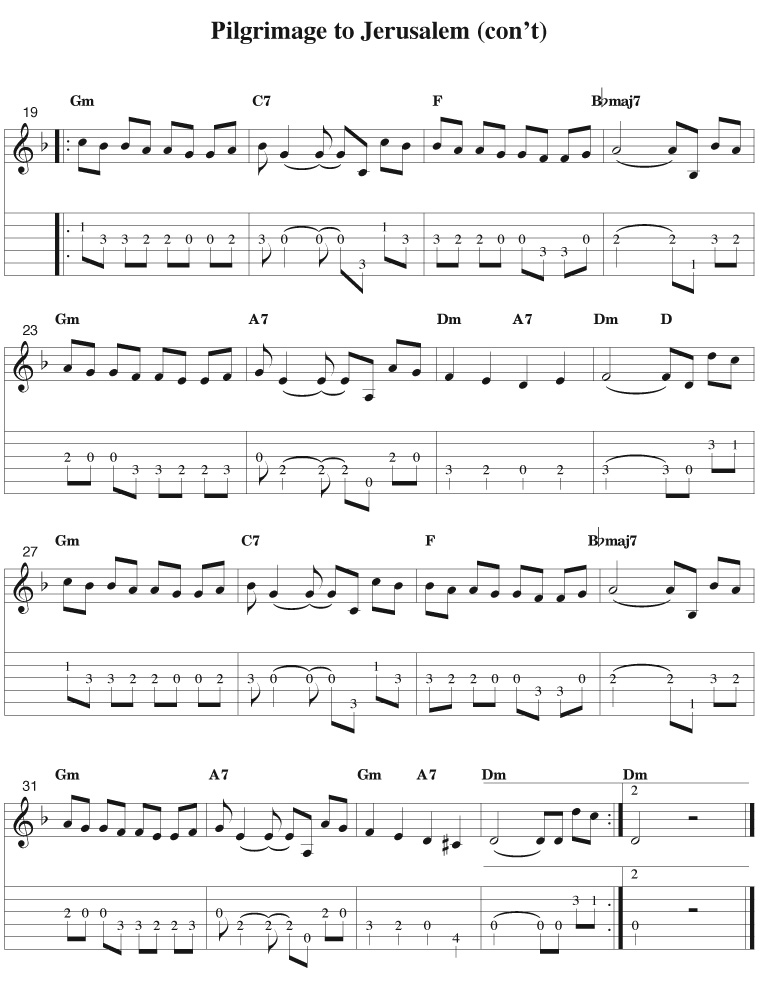|
June 2011 Free Flatpicking Lesson
from
Flatpicking Guitar Magazine
"Pilgrimage to Jerusalem"
Arranged for FGM by Mickey Abraham
Hello
and welcome back to the free flatpicking lesson portion of our monthly
newsletter. Each month, when you click here, you will find a
great new tune to add to your repertoire. This month, in an
attempt to offer tune diversity, I dug deep into my collection of great
tradition melodies. I dug past the bluegrass and the old-time
tunes, past the Irish sets, and even past the swing standards to arrive
at “Pilgrimage to Jerusalem,” a tradition Klezmer melody. Klezmer
music is often described as Eastern European folk music, making it the
bluegrass of Eastern Europe. Similar to a typical fiddle tune,
“Pilgrimage to Jerusalem” has two parts, each of which are repeated,
making the form AABB. I love the minor flavored vibe of this
tune, and feel that you will enjoy the sound as well. As fans of
American folk music, I feel it is important to respect and learn folk
styles from all over the world, and understand how these cultures
inspired American legends like Bill Monroe, Ralph Stanley, and Doc
Watson.
The Chords:
Like
the majority of Klezmer tunes, “Pilgrimage to Jerusalem” is played in a
minor key. Minor keys are often used to express a dark or
introspective quality in a piece of music. One unique aspect of this
tune however, is the way in which the D major chord is used.
Check out the lesson mp3 to hear the unexpected excitement the D
minor to D major change brings to a tune that is based on the I, IV, V
(Dm, Gm, A7) chords of the D harmonic minor scale.
Most of the chords for this tune can be made
with standard open shapes. The only chord that may be a barre
chord for you is Gm, the IV chord of Dm. To finger Gm, a lot of folks
might play an “Em” barre shape at the third fret. If you want to
avoid barre shapes, try playing a chord shape where you are holding the
third fret of the high e, b, and g strings, as well as the bass note g
on the low e string. Muffle the A string and you will have a
pretty nifty sounding open Gm chord shape.
For the second part, you will encounter a fantastic
sounding chord called Bbmaj7. This is not a barre shape, but it
has no open strings -- I am using only my fingertips to depress the
chord, with no barre of any kind. To make the Bbmaj7 chord, place
your index on the first fret ‘a’ string, ring finger third fret ‘d’
string, middle finger second fret ‘g’ string, and finally pinky on the
third fret ‘b’ string. Strum the Bbmaj7 and sit back and here the
beauty!
The Melody:
Due to the large amount of space between certain
notes in the melody, the pick direction and timing is crucial to making
the tune sound correct First, you should notice how the pick-up
notes begin on a upstroke. Next, in measure 2, the first note is
a down stroke, while the next note (on the “and” of beat 3) will be an
upstroke. Please refer back to my pickstroke theory lesson if you
are unsure of when and why to use a down or upstroke with your pick.
The B section begins to take on more of a straight eighth note
feel. I love how the use of doubled notes cross over the bar
line, carrying the soaring melody over the chord progression. To
me, the melody is musically unexpected and predictable at the same
time! I know this seams strange, but take a listen to the lesson
mp3 and see if you can here it. It almost like the tune is
telling a story you have never heard before, but have
experienced.
I hope you enjoy adding this minor flavored Klezmer melody to your list
of songs. As always, if you have any questions or comments on this
e-lesson, or any cool ides you would like to see featured here in the
future, just drop me a line at [email protected]
"Pilgrimage to Jerusalem"


|